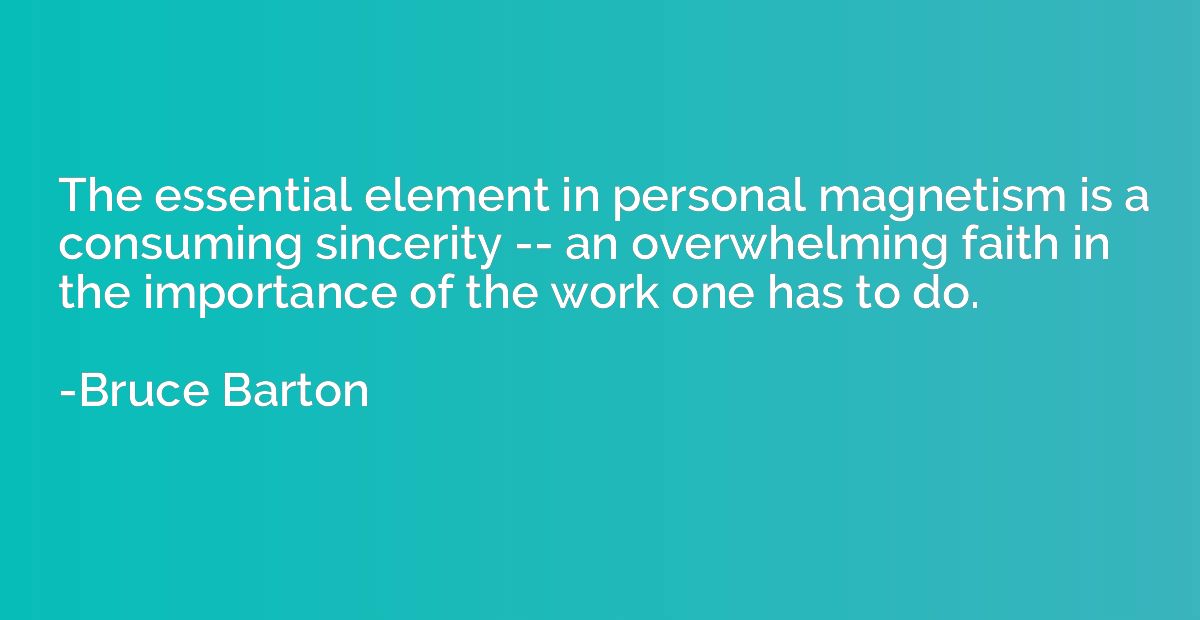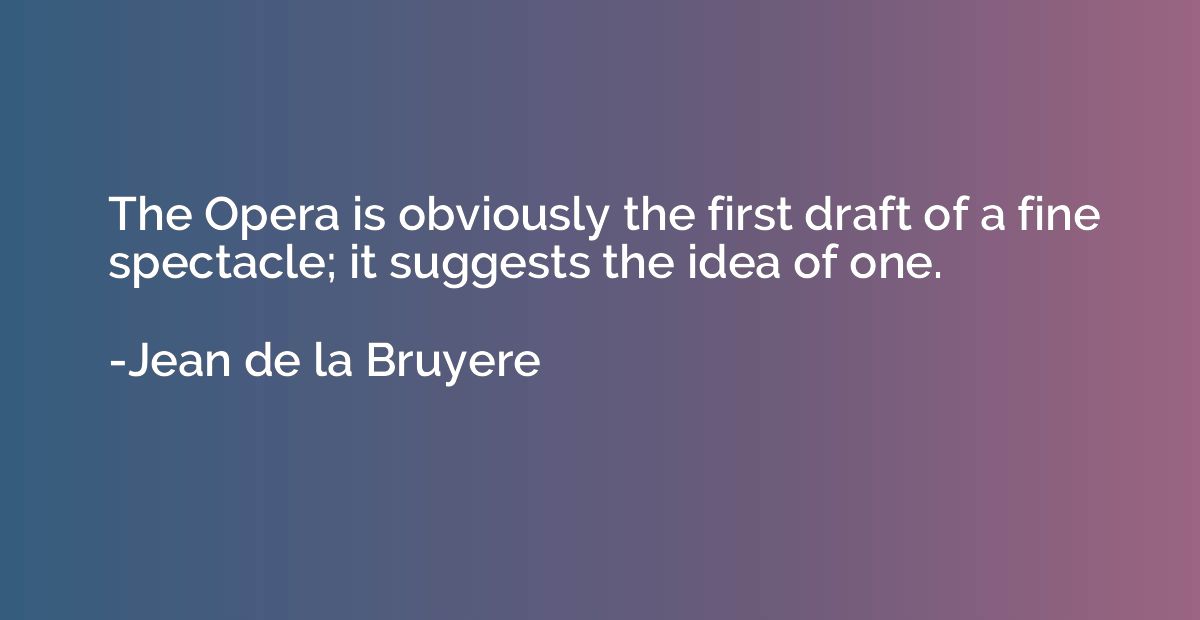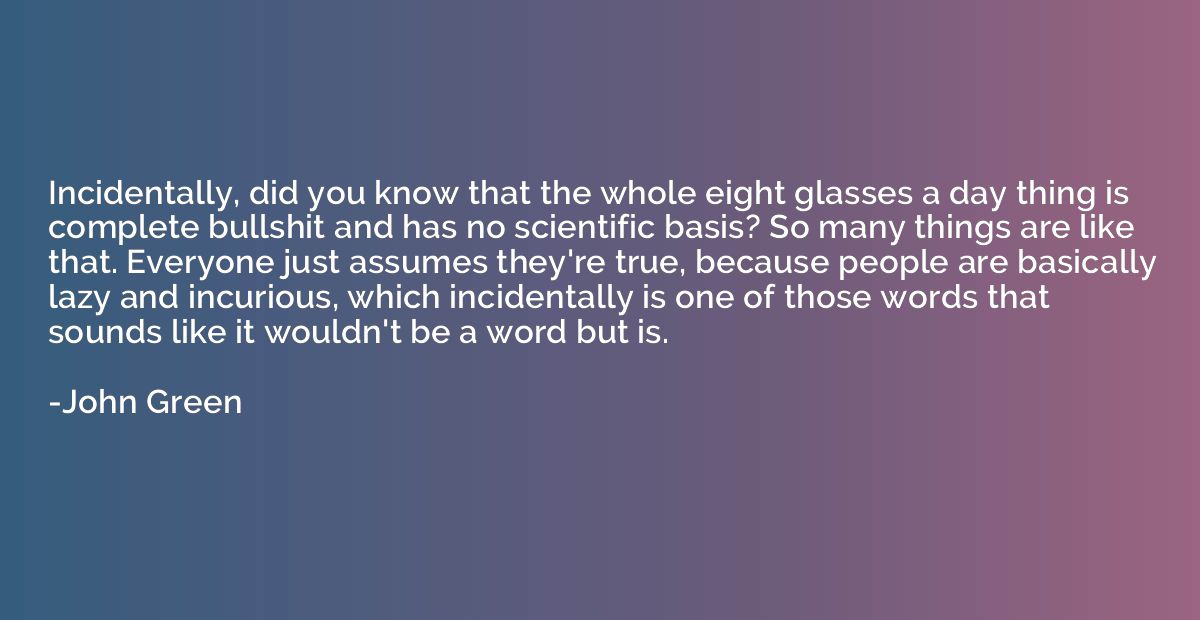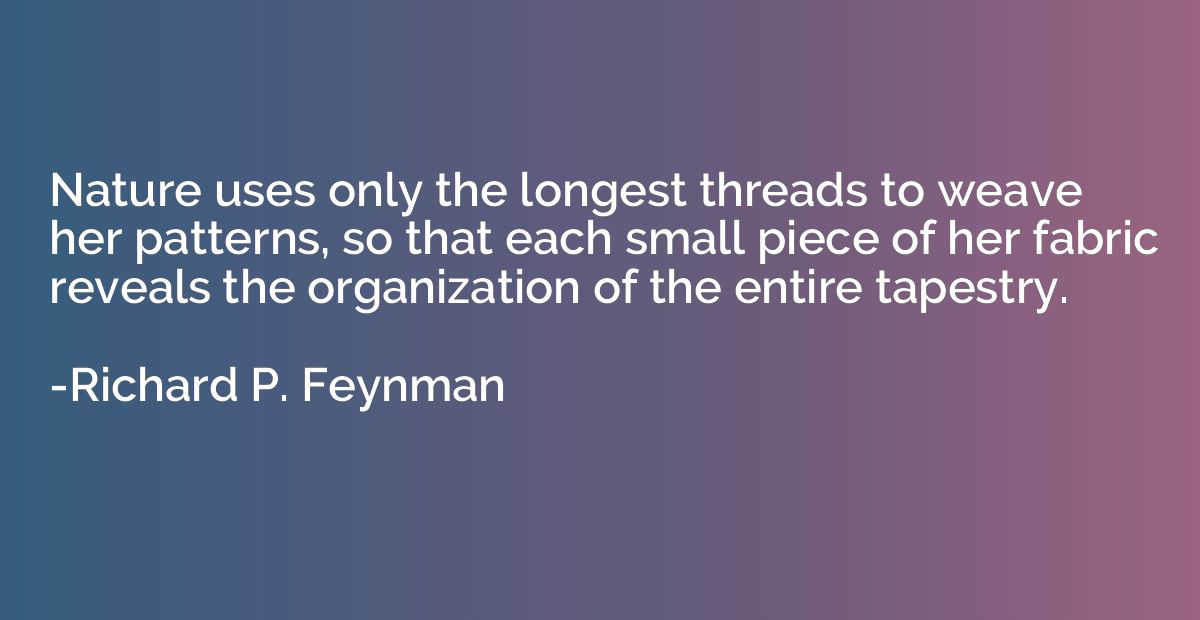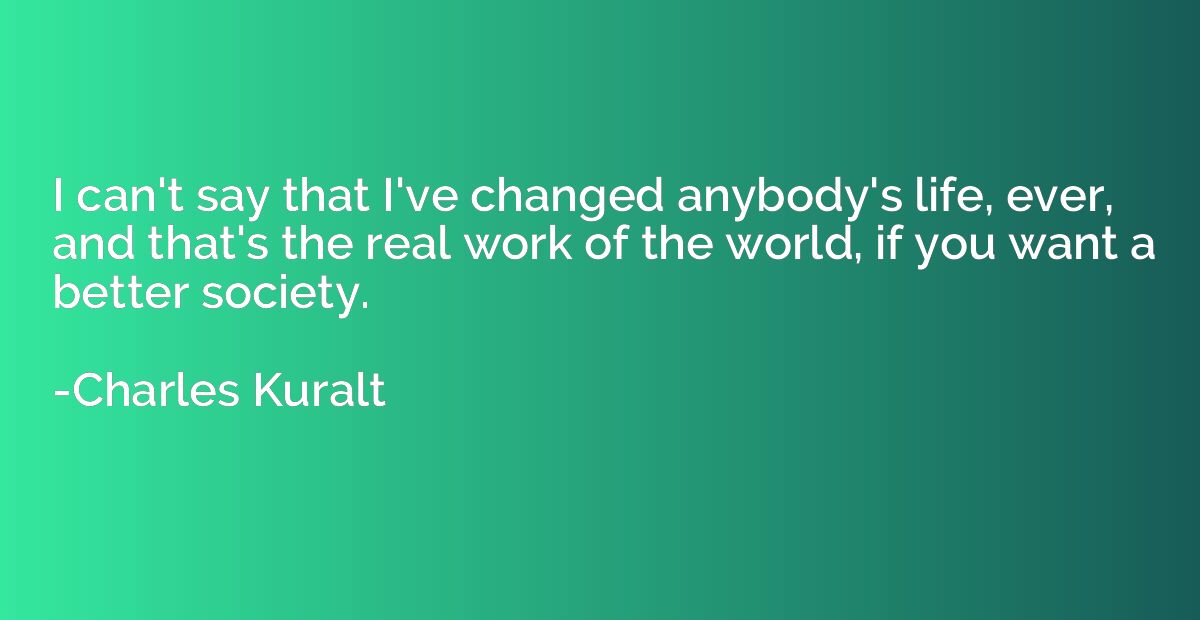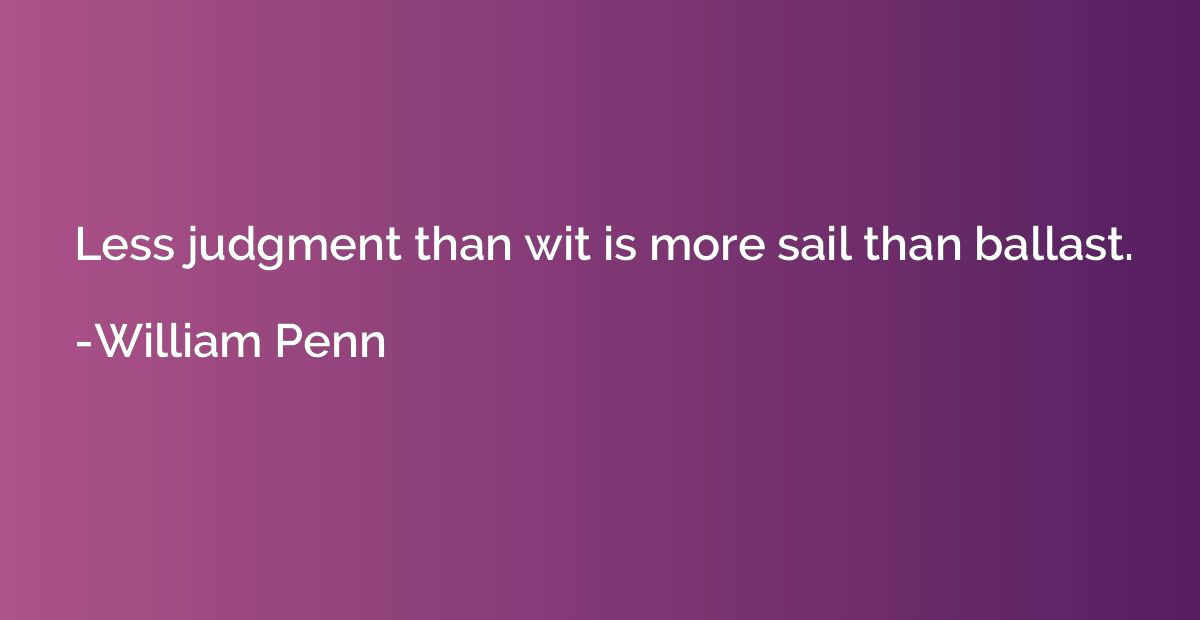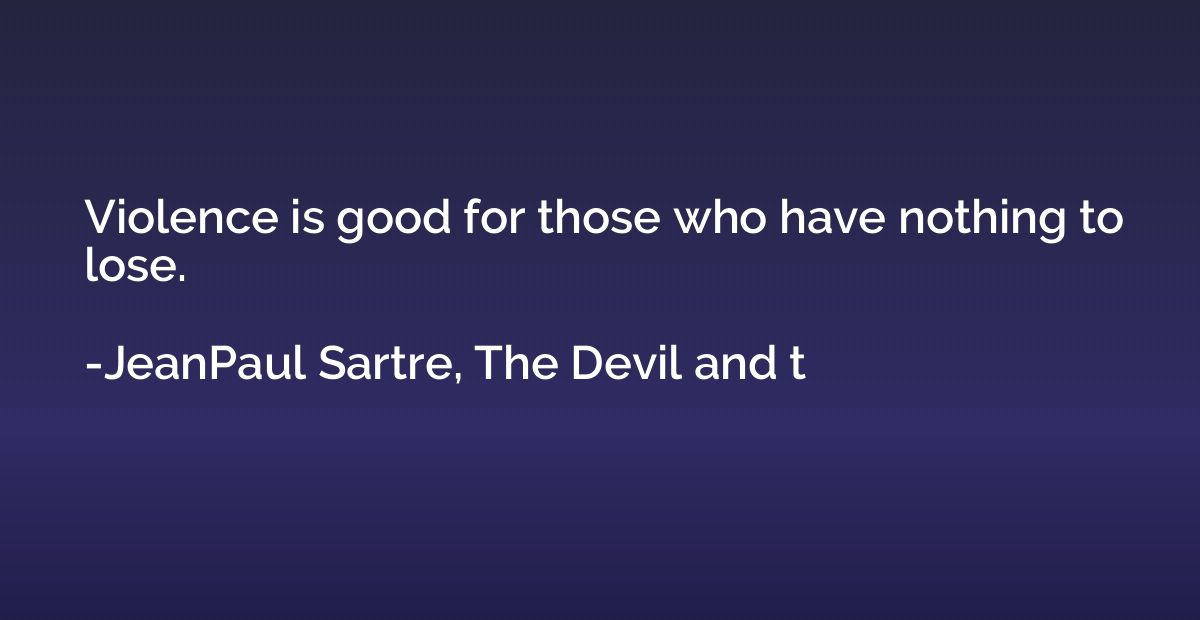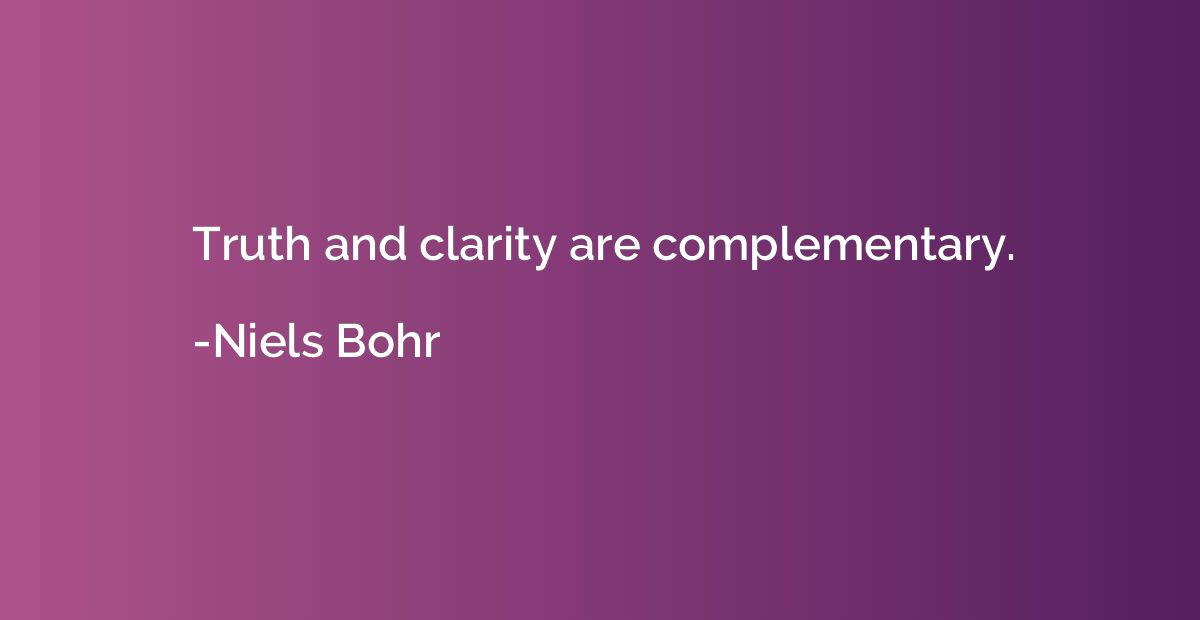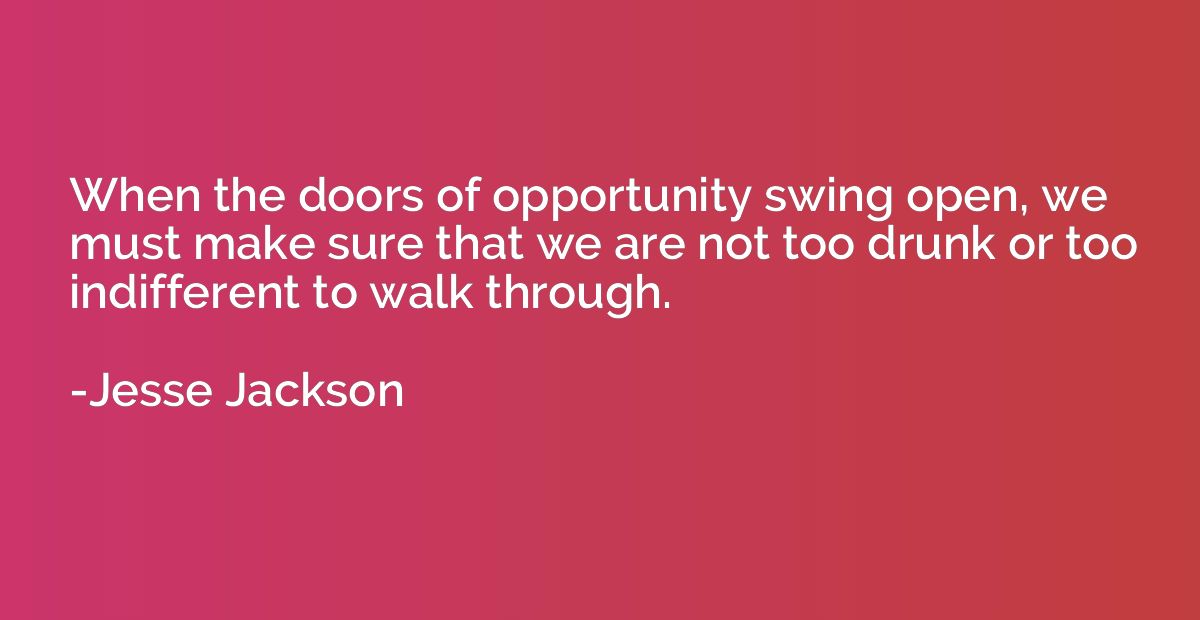Quote by Arne Garborg
It is said that for money you can have everything, but you cannot. You can buy food, but not appetite; medicine, but not health; knowledge but not wisdom; glitter, but not beauty; fun, but not joy; acquaintances, but not friends; servants, but not faithfulness; leisure, but not peace. You can have the husk of everything for money, but not the kernel.
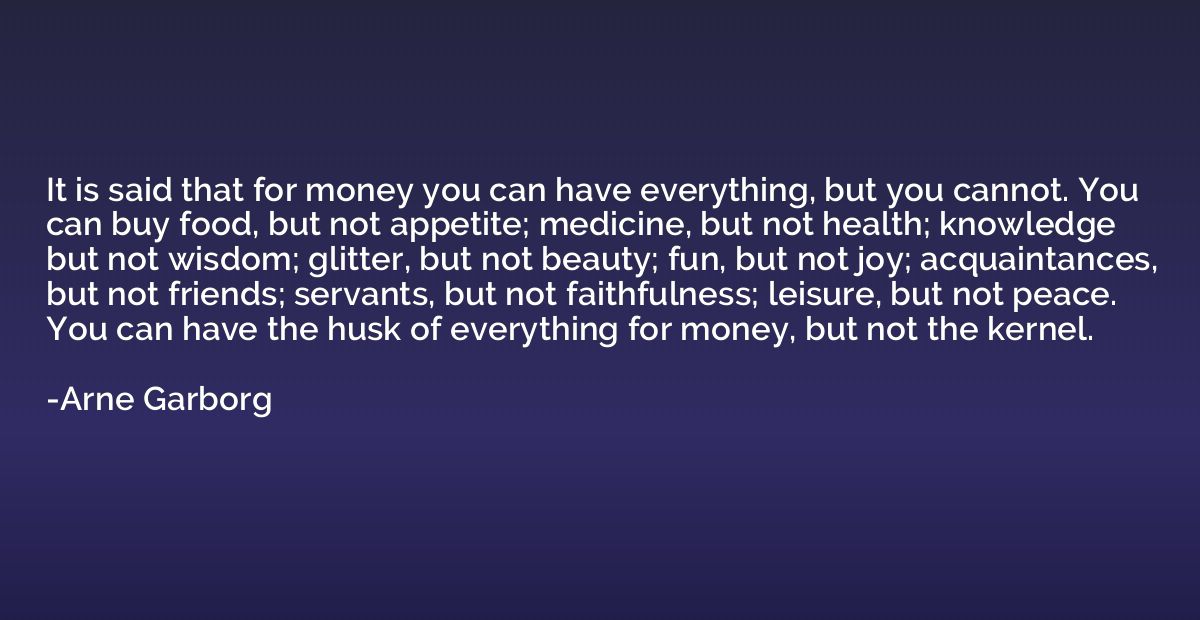
Summary
This quote emphasizes that while money may enable us to acquire material possessions and experiences, it cannot provide us with the deeper aspects of life that give true meaning and fulfillment. It highlights that money can buy certain things like food, medicine, and knowledge, but it cannot give us genuine appetite, health, or wisdom. The quote goes on to illustrate that money can provide temporary pleasures and superficial connections, but not lasting joy, deep friendships, or the inner peace that comes from a fulfilled life. Ultimately, the quote suggests that money can only provide the superficial shell, leaving out the essential core of life's most valuable aspects.
Topics
Money
By Arne Garborg



